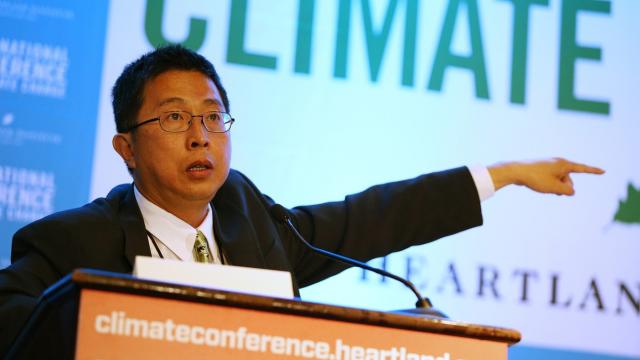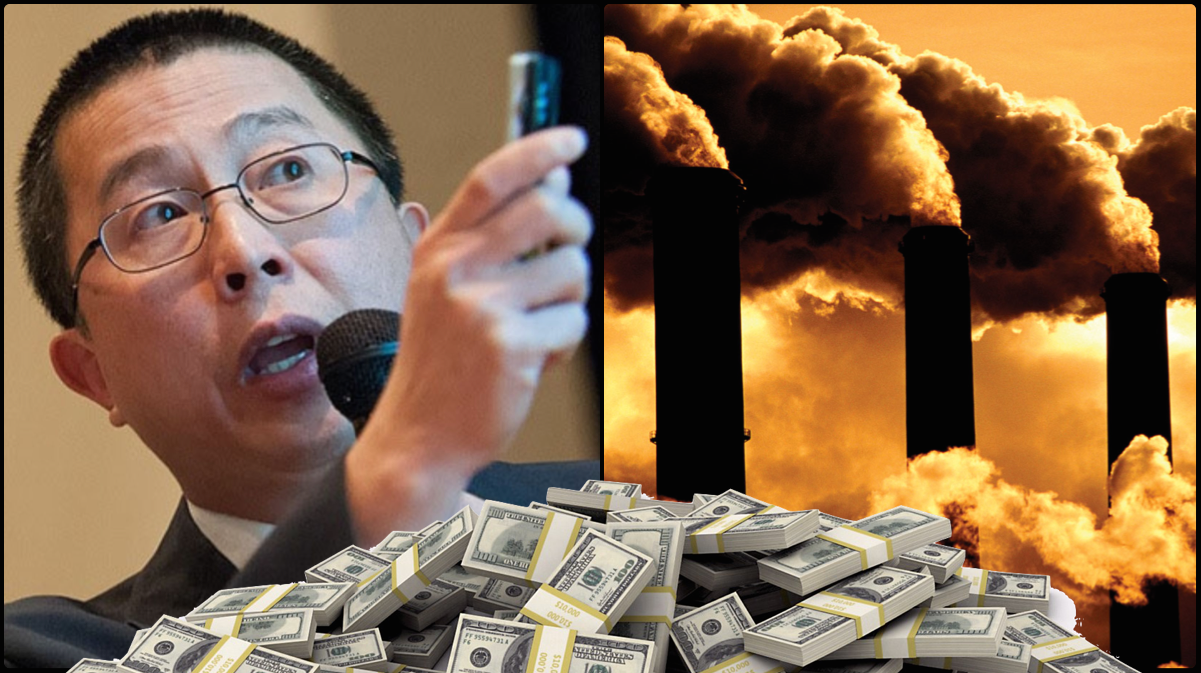
A Harvard-Smithsonian researcher known as a climate skeptic is under multiple ethics investigations arising from his hidden financial relationships with fossil fuel companies.
A handful of academic journals have asked Willie Soon, a researcher at the Harvard-Smithsonian Center for Astrophysics, about his failure to disclose more than $1.2 million in energy industry funding when submitting articles for publication, the Climate Investigations Center (CIC) said.
Soon is also under two parallel ethics investigations by the Smithsonian, a spokesperson for the institution said.
Another journal, the American Meteorological Society’s Journal of Climate, said it had amended a 2009 article by Soon, making it clear that he had been funded by an energy company.
The spate of investigations into Soon – who is frequently held up as an authority by those who reject the underlying science behind climate change – follow revelations in February that the researcher was almost entirely funded by the energy industry.
Over the years, Soon received more than $1.2 million from the Southern Company, a coal-heavy utility, Exxon Mobil, the American Petroleum Institute lobby group, and the Koch family of oil billionaires as well as anonymous donors.
The reports were based on documents obtained by the CIC through freedom of information requests.
In his correspondence with the energy companies, Soon described publication in such journals as “deliverables” against the funding.
Now, academic publishers, including the National Academy of Sciences (which publishes the Proceedings of the National Academy of Sciences, PNAS) and Elsevier, have said they are questioning Soon about his funding.
“Authors are required to disclose any association that poses a conflict of interest with the work and acknowledge all funding sources supporting the work,” Daniel Salsbury, the deputy executive editor of PNAS, told the Guardian in an email. “We are contacting Dr Soon to determine whether any additional disclosures are necessary.”
Elsevier, the academic publishing house, also told CIC it was looking into Soon’s work. Other publications said they have no conflict of interest issue with Soon. Nature Geoscience said it was up to institutions to make sure scientists kept up to ethical standards, not journals. Nature Publishing Group said Soon had not violated its financial policies.
“The competing financial interest statements in the Nature Geoscience paper … is compliant with Nature Publishing Groups’ competing financial interests policies,” a Nature spokesperson wrote in an email. The Smithsonian said it has also opened an investigation into Soon, which is expected to release its findings later this month.
The disclosures about Soon have shone a light on the nature of funding for scientific research.
A number of the journals to which Soon contributed have no conflict of interest policies, the CIC said in a report. That stands in contrast to policies for journal articles for medicine and other scientific disciplines. Soon refused to respond to requests for comment, and forwarded emails from the Guardian to Lord Christopher Monckton, a leading figure among British climate sceptics who is a supporter of Soon.
In the past, Soon and others in the climate contrarian camp have insisted that industry funding had no influence on their work.
Monckton said responsibility for disclosing his fossil fuel connections rested with the Smithsonian.
“The blame for any non-disclosure lies squarely with the Smithsonian and not with Dr Soon himself,” Monckton wrote. “So stop bullying the blameless Dr Soon.”
3 WAYS TO SHOW YOUR SUPPORT
- Log in to post comments













